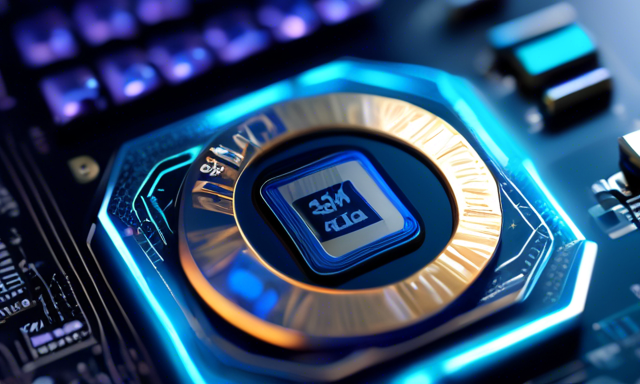Overview of Recent Developments in Chipmaking Regulations 🌍
The Dutch government has recently announced an expansion of export licensing requirements for specific ASML chipmaking equipment. This move signifies a shift in oversight from the United States back to the Netherlands, aligning the two nations’ policies regarding advanced technology exports. The decision comes amid ongoing discussions between the U.S. and the Netherlands about export regulations, particularly concerning Chinese chipmakers. ASML, a leading technology firm based in the Netherlands, has stated that this change is not expected to affect its earnings this year or in the future.
New Export Licensing Requirements 📜
On Friday, the Dutch government revealed its intention to broaden the export licensing requirements for certain ASML chipmaking tools. This decision effectively reestablishes Dutch control over these regulations, which had previously been unilaterally managed by the United States. The U.S. had implemented these restrictions as part of its strategy to limit access to advanced technology for Chinese chip manufacturers, who are seen as potential contributors to China’s technological and military advancements.
ASML’s Response to Regulatory Changes 🏭
In a statement, ASML expressed that it does not anticipate any negative impact on its earnings this year or in the foreseeable future due to the regulatory changes. The company, which is recognized as Europe’s largest technology firm, saw its shares decline by 1.6%, trading at 708.40 euros shortly after the announcement.
Safety Concerns Highlighted by Dutch Officials 🔒
Dutch Trade Minister Reinette Klever emphasized the importance of this decision, stating, “I’m making this decision for our safety.” She pointed out that advancements in technology have led to increased safety risks associated with the export of specific production machinery. This statement underscores the Dutch government’s commitment to ensuring national security while navigating the complexities of international trade.
Impact on U.S.-Netherlands Relations 🤝
While discussions between the U.S. and the Netherlands regarding export policies continue, the recent decision is seen as a practical step that may ease tensions between the two governments. The ASML tools affected by this change include the 1970i and 1980i DUV (Deep Ultraviolet) immersion lithography machines, which are positioned in the middle of ASML’s product lineup.
Previous Restrictions and Future Implications 📉
Under pressure from the U.S., the Dutch government has historically refrained from allowing ASML to export its most advanced EUV tools to Chinese clients. In September 2023, the Netherlands began requiring licenses for the NXT:2000 series and superior DUV tools. ASML has cautioned its Chinese customers that they should not expect deliveries of these tools starting in 2024.
In October 2023, the U.S. imposed unilateral restrictions on ASML’s shipment of the 1970i and 1980i tools, citing the presence of U.S. components in these machines. This has raised concerns among members of the Dutch parliament regarding the implications for the Netherlands’ sovereignty and the challenges ASML faces in managing differing licensing requirements from both countries.
Recent Updates from the U.S. Department of Commerce 📊
On Thursday, the U.S. Department of Commerce revised its export regulations, and the updated Dutch rules adopted similar language regarding lithography, which is a key segment for ASML. The company’s machines utilize lasers to create intricate circuitry for chips, making them essential in the semiconductor manufacturing process.
Chinese Chipmakers and Technological Advancements 💻
Interest in ASML’s 1980i and 1970i machines has surged, particularly following the success of Chinese companies like SMIC in producing advanced chips using DUV tools through a technique known as “multipatterning.” At a recent event in New York, ASML’s CEO, Christophe Fouquet, indicated that Chinese chipmakers could potentially manufacture chips at technology levels of 7nm, 5nm, and eventually 3nm using DUV tools, surpassing the limitations imposed by U.S. regulations.
However, he also noted that while this technique demonstrates engineering capabilities, it may lead to diminishing yields, rendering it economically unfeasible for widespread use.
Final Thoughts on the Evolving Landscape of Chipmaking Regulations 🔍
The recent developments in export licensing for ASML’s chipmaking equipment reflect the ongoing complexities of international trade and technology regulation. As the U.S. and the Netherlands navigate their policies, the implications for global chip manufacturing and the competitive landscape remain significant. The balance between national security and technological advancement continues to shape the future of the semiconductor industry.





 By
By
 By
By
 By
By

 By
By
 By
By